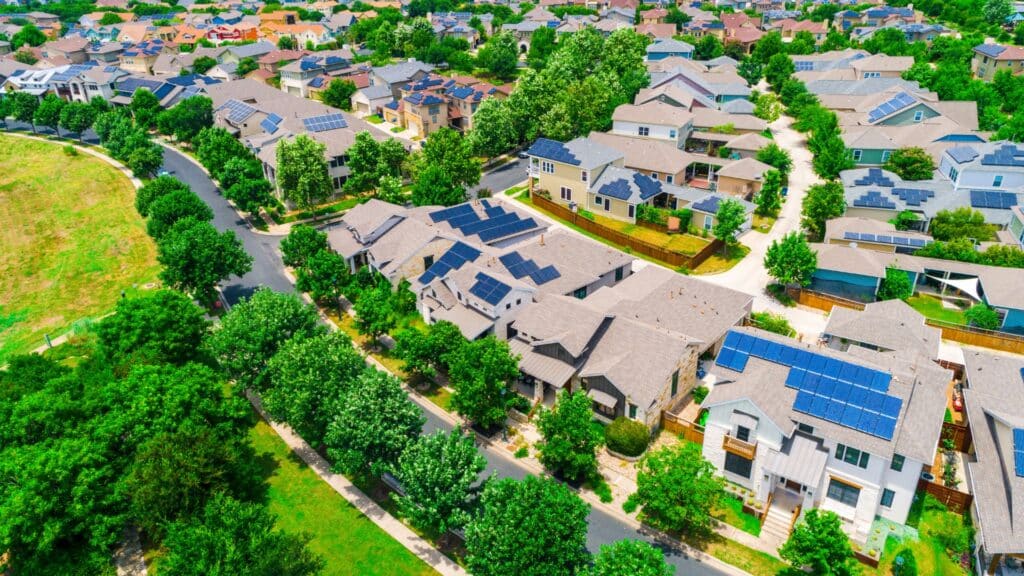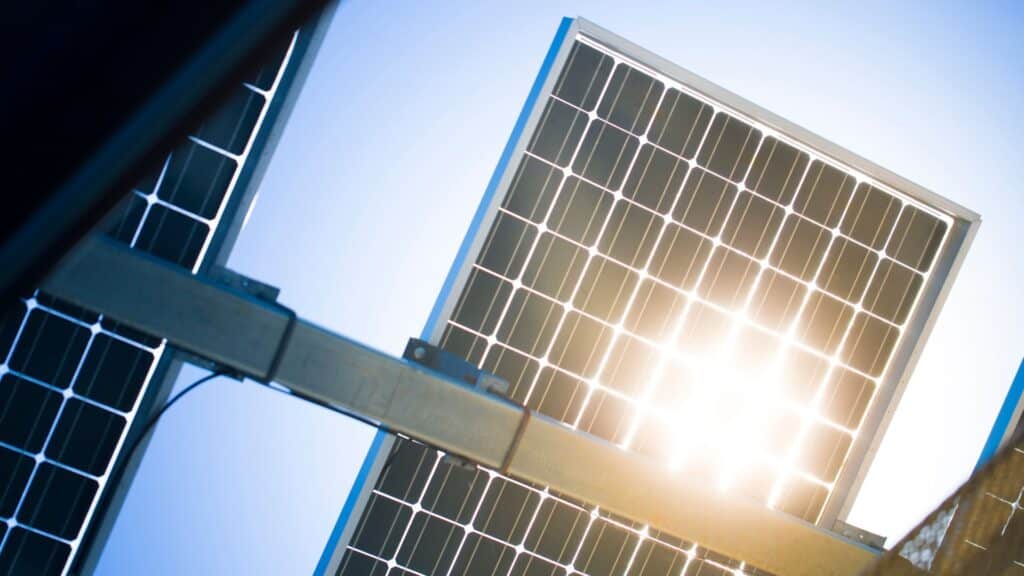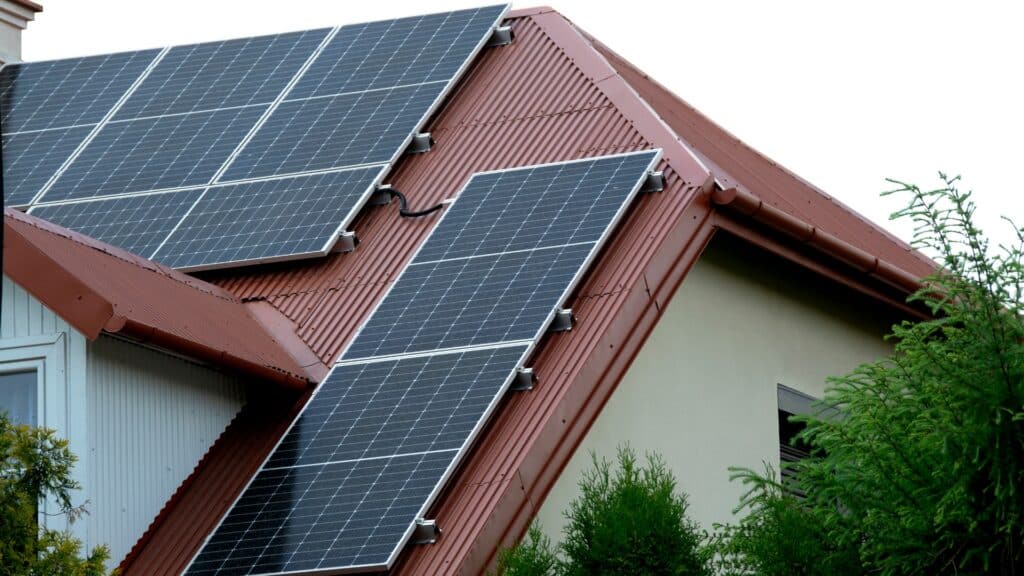Is Solar Energy the Right Choice For You?
As solar energy becomes a frontrunner in renewable sources, Schoenherr Solar is here to illuminate its advantages over other green energy options. This brief guide will help you understand the key benefits of solar power, how solar panels operate, and evaluate solar energy’s potential for your home. With our expertise, you’ll be able to decide if solar is the best renewable energy choice for your needs, offering a streamlined path towards a more sustainable and efficient future. Join Schoenherr Solar in exploring the possibilities of solar energy, making an informed decision for your home’s energy solution.
Understanding Solar Energy
Before diving into the specifics of solar energy, let’s briefly understand what it is. Solar energy is the energy that is harnessed from the sun in the form of sunlight. This energy can be converted into electricity using solar panels, which are made up of solar cells. The panels capture the sunlight and convert it into usable electricity, allowing us to power our homes, businesses, and even entire communities.
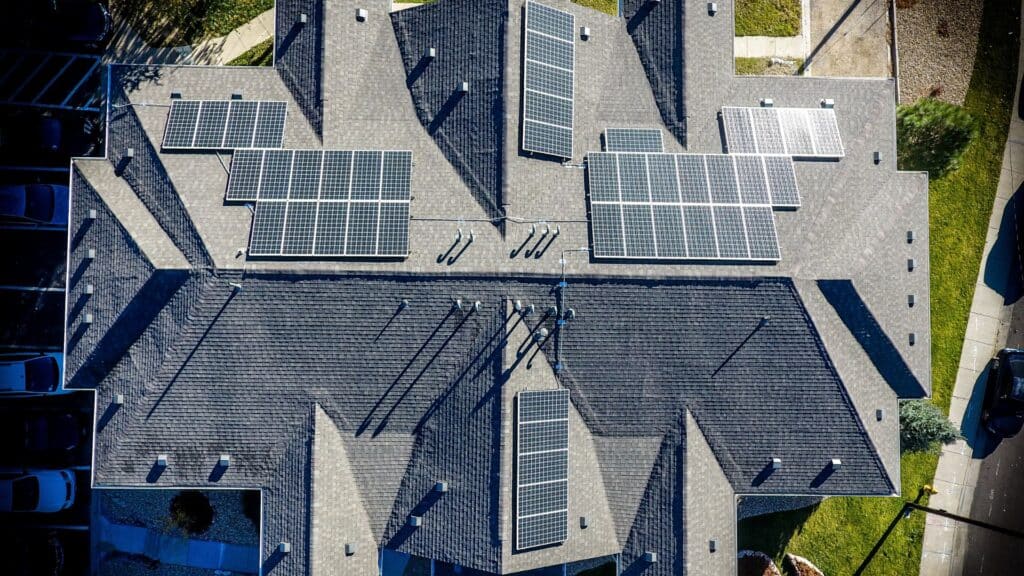
Benefits of Solar Energy
Solar energy offers numerous advantages over other forms of energy. Firstly, it is a renewable energy source, meaning it will never run out as long as the sun continues to shine. Secondly, solar power can significantly lower electricity bills, providing long-term savings for homeowners and businesses alike. By investing in a solar energy system, you can generate your own electricity and reduce reliance on the grid, leading to greater energy independence.
Furthermore, solar energy systems produce electricity without emitting harmful greenhouse gases, making it an environmentally friendly choice. The reduction in carbon emissions helps combat climate change and promotes a healthier planet. Additionally, solar panels require relatively low maintenance, and with the durability of solar cells, they can last for several decades, providing a long lifespan for your energy system.
Assessing Your Home for Solar Energy
Now that we understand the benefits of solar energy, it’s important to assess whether it’s a viable option for your home. Assessing your home’s energy efficiency, solar potential, and estimating your electricity needs are crucial steps in the process. By considering these factors, you can determine the suitability of solar energy for your specific circumstances.

Investigating Your Home’s Energy Efficiency
- Evaluate your home’s energy efficiency before installing solar panels.
- Enhancing energy efficiency can lead to lower energy consumption and maximize solar benefits.
- Simple measures such as proper insulation, energy-efficient appliances, and LED lighting can significantly reduce energy use.
- Conducting an energy audit can identify areas for improvement in your home’s energy usage.
- An energy audit can suggest potential modifications to enhance energy efficiency, optimizing the benefits of solar energy.
Assessing Your Solar Potential
Assessing the solar potential of your property is crucial in determining the feasibility of solar installation. Factors such as the orientation of your roof, any shading obstacles, and the amount of sunlight your property receives throughout the day will impact the effectiveness of solar panels. Ideally, solar panels should be installed in areas with maximum exposure to sunlight.
By evaluating the solar potential of your property, you can determine the amount of energy that can be generated by solar panels. This assessment will help you make informed decisions when it comes to the size and capacity of the solar energy system you may require.
Estimating Your Solar Electricity Needs
Estimating your solar electricity needs is crucial in determining the size and capacity of the solar energy system required for your home. Consider factors such as the size of your household, the appliances you use, and your energy usage patterns. By analyzing your current electricity consumption, you can gauge the estimated amount of electricity the solar system needs to generate to meet your energy needs.
This estimation will help solar installers in designing a solar energy system that suits your specific requirements. With the right system in place, you can generate clean electricity and optimize savings on your electricity bills.
Solar Installation Process
Once you have assessed your home for solar energy, it’s time to dive into the solar installation process. Understanding the installation process and exploring financing options and incentives can make the transition to solar power smoother and more affordable.
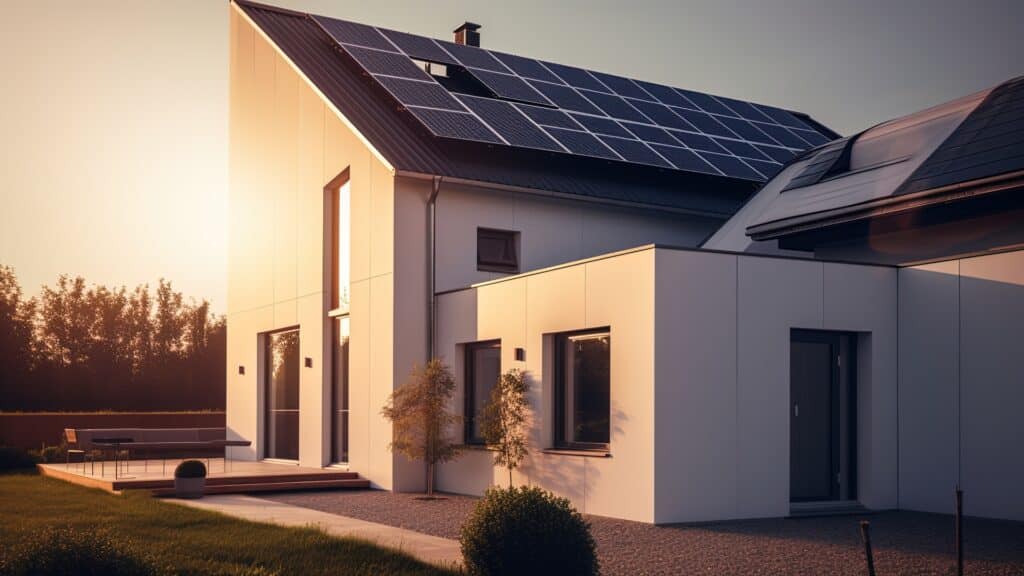
Understanding the Installation Process
Solar installation generally involves mounting solar panels on rooftops or open land where they can capture sunlight efficiently. The installation process includes securing the necessary permits, ensuring compliance with local regulations, and hiring professional solar installers to handle the technical aspects of the installation.
Before the installation, it’s crucial to consult with local utility companies to understand the net metering policies in your area, which allow you to sell excess electricity back to the grid. This interaction with the utility company ensures a seamless connection between your solar system and the local power grid.
Financing and Incentives for Solar Installation
Financing a solar installation can be made more accessible through various financing options and incentives. Consider the following financing options when planning your solar installation:
- Solar leases: Leasing solar panels allows homeowners to enjoy the benefits of solar energy without the upfront costs of purchasing the system.
- Federal tax credit: The federal solar tax credit, also known as the Investment Tax Credit (ITC), offers a significant incentive for homeowners installing solar panels. The tax credit allows homeowners to deduct a portion of the solar system’s cost from their federal taxes.
- Monthly payments: Some solar installers offer financing options that allow homeowners to make monthly payments, spreading out the cost of the solar system over time.
Other Forms of Renewable Energy
While solar energy offers numerous benefits, it is essential to explore other renewable energy options to make the best-informed decision for your energy needs. Let’s take a closer look at wind energy, hydropower, biomass energy, and geothermal energy.
Wind Energy
Wind energy harnesses the power of the wind to generate electricity. Wind turbines capture the energy from the wind and transform it into usable power. Wind farms, consisting of multiple turbines, are often located in regions with consistent wind flow, such as coastal areas or open plains.
Wind energy is a renewable energy source that doesn’t produce greenhouse gas emissions during the energy generation process. It complements solar energy, as wind power generation can continue during cloudy days or at night, compensating for periods of lower solar energy production. Wind energy has the potential to power communities, industries, and even entire countries, contributing to a more sustainable future.

Hydropower
Hydropower, also known as hydroelectric power, harnesses the energy from moving water to generate electricity. By constructing dams and reservoirs, the flow of water is controlled, creating potential energy that can be converted into usable power. Hydropower is a reliable and established renewable energy source, contributing a significant portion of the world’s electricity production.
Hydropower plants provide a sustainable energy solution, offering flexibility in electricity generation based on the demand. Large-scale hydropower plants can generate vast amounts of electricity, making them crucial in meeting the energy needs of communities and industries worldwide.
Biomass Energy
Biomass energy utilizes organic materials, such as wood, agricultural waste, or dedicated energy crops, to produce electricity, heat, or biofuels. Biomass can be burned directly or converted into biofuels, including ethanol and biodiesel. By utilizing biomass as an energy source, carbon emissions from decomposing organic materials are reduced, contributing to lower greenhouse gas emissions compared to fossil fuels.
Biomass energy plays an important role in waste management, as it allows the utilization of waste materials for energy production. Additionally, the production of energy from biomass can stimulate local economies, particularly in rural areas, by creating new job opportunities and supporting local agriculture.

Geothermal Energy
Geothermal energy harnesses the naturally occurring heat from the Earth’s core for power generation. Geothermal power plants use steam or hot water reservoirs found beneath the Earth’s surface to produce electricity. This renewable energy source provides a consistent and reliable power generation solution, regardless of weather conditions.
Geothermal energy systems have the advantage of being carbon emissions-free, making them an attractive option for achieving sustainability goals. They can provide power for residential, commercial, and industrial applications, contributing to a more diverse energy mix and reducing reliance on fossil fuels.
Is Solar Energy a Good Investment for Your Home?
Investing in solar energy for your home can offer numerous long-term benefits, making it a potentially good investment. By generating electricity from the sun, homeowners can enjoy lower electricity bills, substantial energy savings, and greater energy independence. Let’s take a closer look at the long-term benefits of solar energy.
Understanding the Long-term Benefits of Solar Energy
The long-term benefits of solar energy extend beyond the environmental advantages it offers. By investing in solar panels, homeowners can experience the following advantages:
- Lower electricity bills: Solar energy systems can offset a significant portion of a homeowner’s electricity consumption, resulting in lower monthly energy bills. Over time, the energy savings can add up, potentially providing a substantial return on investment.
- Energy savings: Solar energy systems provide energy security and stability, shielding homeowners from rising electricity costs in the future. By producing your own electricity, you become less dependent on grid electricity, giving you greater control over your energy expenses.
- Property value: Installing solar panels can significantly increase the value of your home. Studies have shown that homes with solar panels sell faster and at higher prices, attracting eco-conscious buyers looking for sustainable living solutions.
- By considering the long-term benefits, lower electricity bills, and the potential increase in property value, solar energy becomes an attractive option for homeowners looking to make a sustainable and financially sound investment in their homes.
Schoenherr Solar: Harnessing The Power Of The Sun
As a reliable, sustainable, and cost-effective source of power, solar energy has rapidly become the go-to choice for homeowners seeking an alternative to traditional energy sources. With the advent of advanced technology and a growing awareness of environmental issues, Schoenherr Solar is at the forefront of empowering households to embrace solar energy. Our solar panels not only minimize your carbon footprint but also ensure long-term financial gains through lower electricity bills and the possibility of enticing incentives. Although renewable energy sources like wind, hydropower, biomass, and geothermal offer notable benefits, solar energy distinguishes itself due to its unparalleled accessibility and flexibility. If you’re on the verge of transitioning to renewable energy, choosing Schoenherr Solar as your partner is a wise decision that promises a greener future and enduring advantages. Take a look at Our Blog for more information on solar energy!

